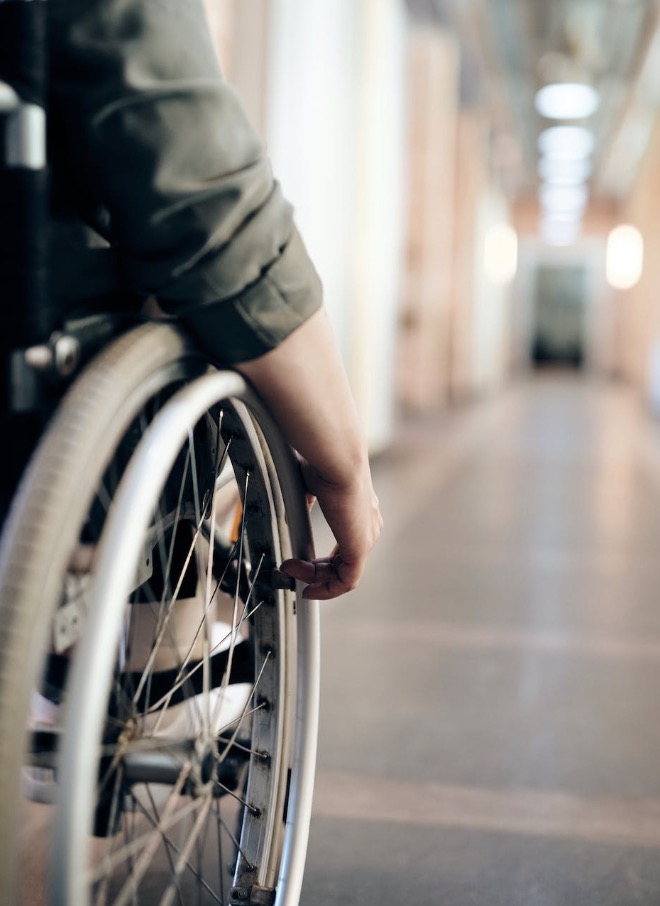About 22% of people with disabilities are diagnosed with depression during their lifetime, highlights one Oregon State University Newsroom post. For individuals who have experienced a sudden disability, adjusting to a new way of life can certainly put a strain on one’s mental health. When it comes to living a happier life, however, finding hope and help can be done in various ways — from finding what works for you to the valuable resources out there.
Story Stages
Fostering a renewed sense of hope
According to the Centers for Disease Control and Prevention (CDC), adults with disabilities report frequent mental distress almost five times as often as adults without disabilities. For those who are newly disabled, grappling with an array of complex feelings can be challenging. According to HelpGuide.org, you can reduce the impact that your disability has on your life by being your own advocate, taking advantage of the things that you can do, and setting realistic goals, all of which can help you thrive.
HelpGuide further advises finding things to do, specifically when it comes to things that give you meaning and purpose. “A disability can take away many aspects of your identity, leaving you questioning who you are, what your value is, and where you fit in society,” HelpGuide explains. This can be particularly true for those who may be unable to do the same things as before — “That’s why it’s important to find new things that make you feel good about yourself — things that give you a renewed sense of meaning and purpose.” The site goes on to offer an array of suggestions — from volunteering to developing new hobbies, or even taking care of a pet.
Discovering valuable resources
For newly disabled individuals, stress may stem from uncertainty surrounding the newfound situation. Finding support via disability support groups is just one great resource worth looking into. According to VeryWell Health, disability support groups provide a place for people to talk about their experiences with others who experience the same (or similar) conditions. This can help greatly when navigating feelings of loneliness, though it can also help in adapting to a new way of life. HelpGuide.org also highlights the value in reaching out for support in other ways, such as by nurturing the relationships in your life.
Stress can also arise from the financial aspects involved when experiencing a sudden disability, particularly when it comes to aspects like healthcare. When exploring healthcare resources, understanding the difference between Medicare and Medicaid can be of massive help, particularly when determining which you may be qualified for. For instance, Medicaid is a joint federal and state government program that works to provide healthcare coverage to eligible individuals with limited income and resources, and is primarily designed for low-income people/families, as well as those with disabilities regarding the costs of medical care. Medicare, on the other hand, is a federal government program for healthcare coverage for those aged 65 and over (as well as to younger individuals with disabilities). Unlike Medicaid, Medicare is not income-based, meaning that all eligible beneficiaries receive the same level of coverage (regardless of income). Because the eligibility requirements differ for Medicaid and Medicare, connecting with a lawyer can be a great way to get help with more complex questions.
The impact of reaching out
For those who have become recently disabled, acknowledging and accepting the disability and new way of life can be a major challenge, and it’s okay to grieve the past. “Acknowledging a new disability isn’t always easy; for many, it can take years to fully accept that they are disabled and can no longer do some, or many, of the things they once enjoyed doing,” explains VeryWell Health. The VeryWell post goes on to highlight that feelings of sadness or anger while grieving the loss of a former life is normal. With that in mind, reaching out in regard to professional help can be beneficial.
According to Healthline, therapy can help you better understand your own thoughts, emotions, and behaviors, “especially those that accompany the experience of living with a disability.” As such, it’s explained that therapy can give you the skills that are necessary in order to cope with and adapt to life with a disability. Searching for a therapist who understands disability culture and specializes in disabilities is a great place to start when looking to navigate such issues.
A sudden disability can be a difficult and life changing experience. However, it’s important to remember that there are several ways in which one can thrive — from exploring helpful resources to finding a newfound sense of purpose and reaching out to those around you.
